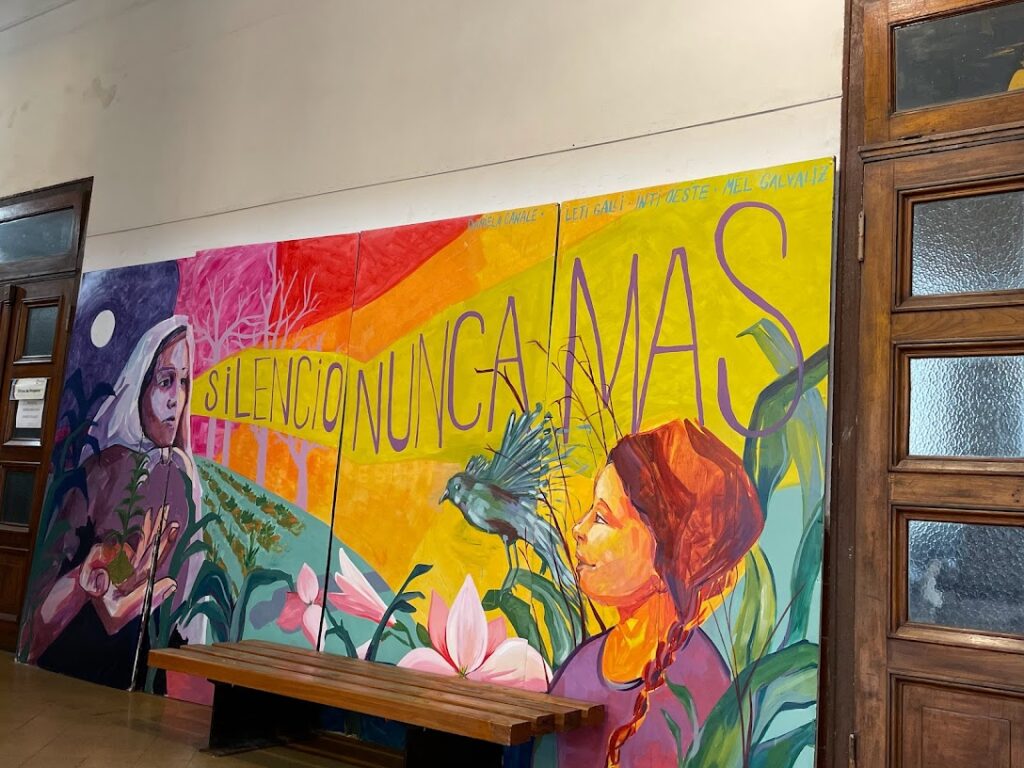Week 3

This was the first full week of individual work, and the first week that I’ve felt productive and fulfilled when I leave the Commission each day. As I read more and more interviews with prisoners, I realized that they shared a feeling of resignation and dismissiveness. These people were describing acts of extreme torture and cruelty with the detachment of someone discussing the weather or what they had for dinner. What’s more, there were thousands of prisoners on file and even more thousands of interviews. Unless the prisoner was new to the system, it wasn’t uncommon to click on one’s file and see a list of at least 10 interviews, each with multiple human rights violations. It was frustrating to read an interview with a prisoner asking desperately for medical help, knowing that he got medical help because we took legal action, and then reading the next interview about how he was never taken for follow-up appointments. Although I don’t know about all the work the Committee and the Commission overall do, I wish there was something more tangible and long-term that we could do to help the prisoners. It seems like right now, we’re just putting Band-Aids on a gaping wound.
Week 4
There are two teams within the Commission that work directly in prisons. One team performs general inspections in different areas of prisons. First, they observe the prisoners’ living conditions and to what extent basic human rights (e.g. properly cooked food, mattresses to sleep on, access to showers) are being met. Then they conduct individual interviews with prisoners, who tell them what specific needs they have so their legal team can be informed. One of the materials we used to prepare for our first inspection was a manual called the Istanbul Protocol, which was written by the UN and sets global standards for investigating and documenting torture and mistreatment. I was impressed by the depth and breadth of this manual. Since I’ve never worked in human rights before, I didn’t know that there were so many guidelines. I’m happy that there are guidelines, but I wish torture wasn’t so widespread that we need them.
On Wednesday, we visited Unidad Penitenciaria No. 1 (de Olmos), about 30 minutes outside of La Plata. The plan was to visit the university center there and interview the students about both their education and the general living conditions. As soon as we drove up to the prison, I could sense this feeling of sadness and resignation. It was made worse by the SPB (Servicio Penitenciaria Bonoaerense) guards, who were all joking around with each other in the lobby and cheerfully greeted us as they unlocked each door. I saw the smiles on their faces, and I thought about all the interviews I read the week prior and how these friendly guards treated the prisoners when we weren’t there. Thankfully, the university center was lively and notably lacking SPB presence. We took a tour around the school, and we sat down in a classroom to listen to them talk about the structure of their education, the degrees they could get, and the problems they had getting school supplies and exams. Although I’m not sure why I expected anything different, the prisoners were friendly, and I didn’t feel like I was within prison walls. I know, though, that it would have felt different if we had entered the actual prison.
On Sunday, a few of us took the train into Buenos Aires to visit the Espacio Memoria y Derechos Humanos (ex ESMA), which was a naval academy turned into a clandestine confinement and torture center during the last Argentine military dictatorship, from 1976-1983. It was horrific, to say the least. We only went into a few buildings, but the Officer’s House was the most impactful. This was where most desaparecidos were first taken when they were detained. We visited the dark, cold basement where many were kept and tortured, and we read the testimonies from survivors. It was heartbreaking, and it helped me understand the impact of the dictatorships in Argentina. Knowing that people were tortured and assassinated where I was standing, less than 40 years ago, made me realize how important and relevant the work is that the Commission does.
At the end of the week, we began planning our work with the second Committee team, which works on complex cases with specific prisoners.





